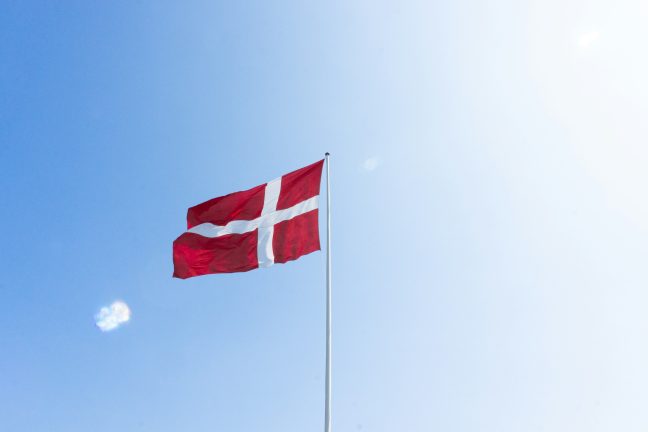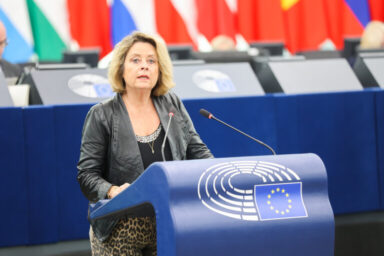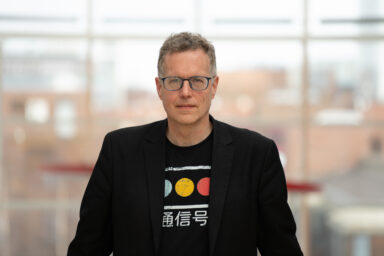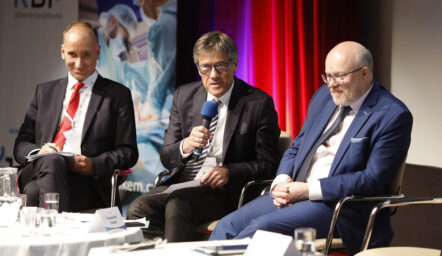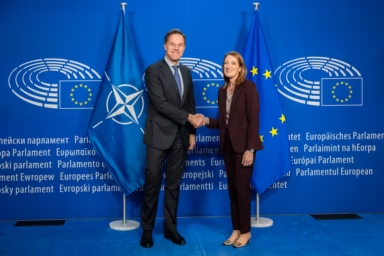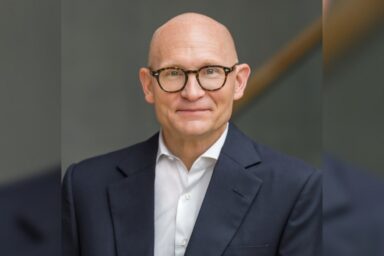As it takes over the EU Council presidency, Denmark aims to shape a pivotal moment in European public health. In a presentation to the Parliament, Danish health minister Sophie Løhde laid out her Presidency’s core priorities, structured around three pillars: preparedness, a robust life science strategy, and swift adoption of the EU’s flagship Pharmaceutical Package.
“This is the political reality in Europe today,” Ms Løhde told the Parliament’s public health committee (SANT). “And it affects our health systems directly.” She warned that medicine shortages, constrained access to treatments, and supply chain vulnerabilities are no longer hypothetical risks, but daily realities. “This is why we have chosen preparedness and life science as the themes for the Danish Presidency of the Health Council.”
She underscored the urgency of action, both on reforming pharmaceutical legislation and on finalising the Critical Medicines Act (CMA) to strengthen Europe’s health sovereignty. “It will not be easy. But we believe it can be done,” Ms Løhde said of the Pharmaceutical Package, calling for cooperation between EU institutions to deliver results.
It will not be easy, but we believe it can be done. – Danish Health Minister Sophie Løhde, on finalising the EU Pharmaceutical Package during Denmark’s Presidency
Central to her message was a commitment to keeping patients front and centre. “The patient should be at the heart of what we do, wherever that person lives within the EU,” she stressed. That vision translates into a clear legislative roadmap: stronger EU coordination in times of crisis, targeted incentives to fuel innovation, and equitable access to medicines and medical technologies for all Europeans.
Preparedness and the Critical Medicines Act
The Danish Presidency plans to address Europe’s medicine shortages and vulnerabilities head-on. “Preparedness is not just ensuring supply in times of crisis. We must ensure the continuous availability of critical medicines in the EU,” Ms Løhde stated, underscoring the need to diversify supply chains and strengthen incentives.
In response to MEP Tomislav Sokol’s (EPP/HRV) question on stockpiling, the minister defended the Commission’s overall strategy on medical countermeasures but acknowledged the need for improvement. Mr Sokol had raised concerns about the financial and logistical implications of joint EU-level stockpiling, questioning who would bear the cost, whether the EU, national governments, or manufacturers, and what would happen when stockpiled medicines expire.
You might be interested
He also flagged the complexity of aligning joint procurement with diverse national reimbursement systems and warned that eliminating differential pricing could have major implications for parallel trade. Ms Løhde said better coordination between member states and a more efficient stockpiling approach would be key topics for Council discussion.”
The presidency sees the Critical Medicines Act as a central instrument. Ms Løhde confirmed that reaching a general approach and launching trilogues is a top priority. But several MEPs challenged the credibility of current funding levels. They highlighted that the EU4Health programme sets aside only €80m. This is far below stakeholder estimates in the billions. Ms Løhde responded that broader Multiannual Financial Framework (MFF) negotiations would tackle the financing gap.
Another challenge raised was whether the CMA’s scope is adequate to support critical non-medicinal goods like masks and respirators. Ms Løhde acknowledged this limitation and noted the need for further discussion on creating permanent tools for strategic medical supplies. She also affirmed that the CMA and Pharmaceutical Package must move forward in parallel, stating: “It may be that progress in one area helps to take the other forward.”
A life science ecosystem that delivers
Innovation is another priority, with life science set to take centre stage. “We need a patient-orientated approach to life science, an approach that gives clear direction to our industry to provide us with the solutions we need,” Ms Løhde said.
We can’t continue to do what we’ve done in the past. – Danish Health Minister Sophie Løhde
Responding to calls from former Commissioner Vytenis Andriukaitis (S&D/LTU) and other MEPs to push for a rare diseases strategy, the minister committed to advancing incentives under the pharma package. “We want to develop an incentives package, the aim being that patients should have access to the treatments they need,” she said.
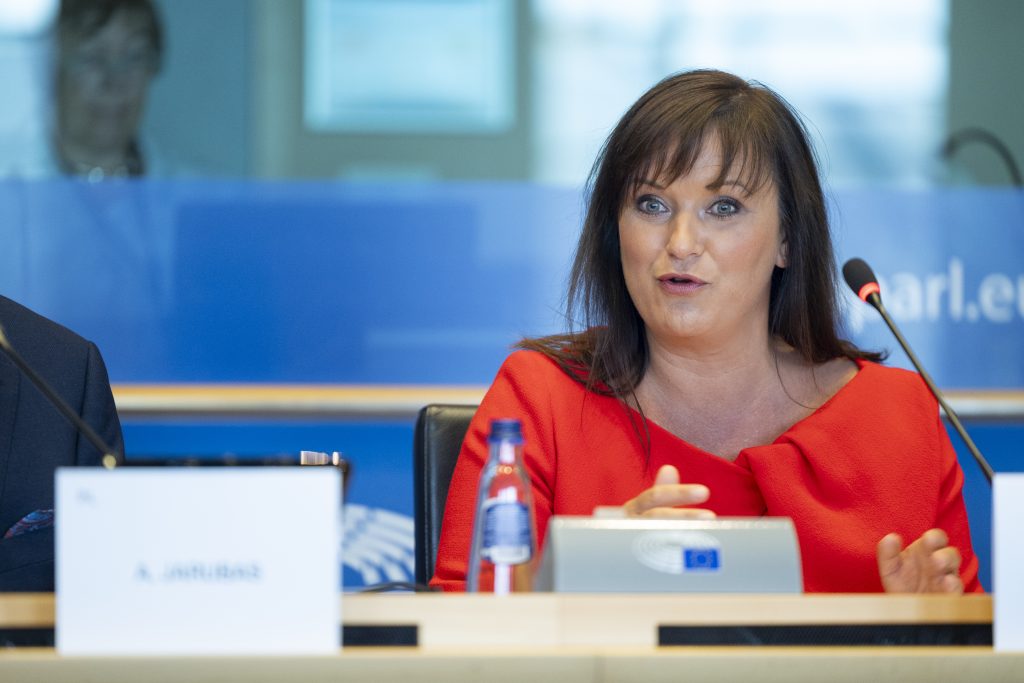
She also welcomed the Commission’s Life Science Strategy as “a good stepping stone” and highlighted its focus on multi-country clinical trials: “They are an important shortcut to spreading the benefits of innovative medicines and therapies more widely in Europe.”
AMR also featured prominently in this discussion. Ms Løhde acknowledged divergent views on the antibiotic voucher proposal but promised to seek a compromise that fosters true innovation while safeguarding responsible use. “We need to find the right kind of balance,” she said.
MEPs also brought up medical devices, calling their omission a missed opportunity. Ms Løhde responded that the Danish Presidency would raise the issue in Council, acknowledging that the Medical Devices Regulation is “changing rapidly” and likely in need of adjustments, particularly for paediatric access.
The Pharmaceutical Package, make or break
With trilogues already underway, the Danish Presidency aims to conclude the Pharmaceutical Package before the end of 2025. “It will not be easy, but we believe it can be done,” Ms Løhde said. “The pharma package will set the framework for a large part of our life science industry for many years to come.”
MEPs from across the political spectrum stressed the need for balance between innovation incentives and equitable access to medicines. “We need to avoid a postcode lottery,” said Mr Sokol. Ms Løhde agreed: “Access must be timely and equitable for all.” She added that the presidency would act as “a neutral mediator” to ensure that the Council’s mandate, boosting competitiveness while ensuring access, is upheld in negotiations with Parliament.
(Denmark) achieved results through dialogue and respect for different positions. That is the approach I would propose for the pharmaceutical package, and for all other major issues in EU health policy. – Danish Health Minister Sophie Løhde
The debate also tackled technical concerns. MEPs questioned how joint procurement, stockpiling costs, and national reimbursement systems would interact. Ms Løhde acknowledged the complexity. She reiterated that the pharma package and CMA must function in tandem and be guided by real patient needs.
Beyond the pill
In a notable shift from treatment-centred discussions, MEPs urged the presidency to champion prevention and environmental health. Issues such as PFAS pollution, tobacco use, and obesity were raised as deserving stronger EU coordination.
Ms Løhde responded positively, pointing to Denmark’s national actions on PFAS and its cardiovascular prevention agenda. “We need to review our approach when it comes to the whole pathway of diseases from prevention through to recovery. I know that the Commission is working on this,” she said.
But perhaps the strongest concern came over workforce shortages, with Commission projections of 4.1 million unfilled health worker roles by 2030. MEPs stressed the need to address this existential challenge to care delivery. Ms Løhde agreed, describing Denmark’s own health system reform as a response to demographic pressure. “We can’t continue to do what we’ve done in the past,” she said, calling for new models of organisation and greater innovation in care delivery.
A broader vision of security
Several MEPs encouraged Denmark to link health preparedness more explicitly to the EU’s evolving security and defence posture. Ms Løhde cautiously welcomed the idea, suggesting that discussions around the MFF could be a venue to explore this further.
Throughout her remarks, the minister emphasised that the Danish Presidency’s success will hinge on cooperation. She pointed to Denmark’s own domestic reform process as a lesson in inclusive dialogue. “We achieved results through dialogue and respect for different positions,” she said. “That is the approach I would propose for the pharmaceutical package, and for all other major issues in EU health policy.”
With Denmark now steering the Council through a critical phase for Europe’s health union, its presidency offers not just policy proposals but a call for political maturity. “Together,” Ms Løhde concluded, “we must show that the EU institutions can work together and take the necessary political decisions in challenging times.”
